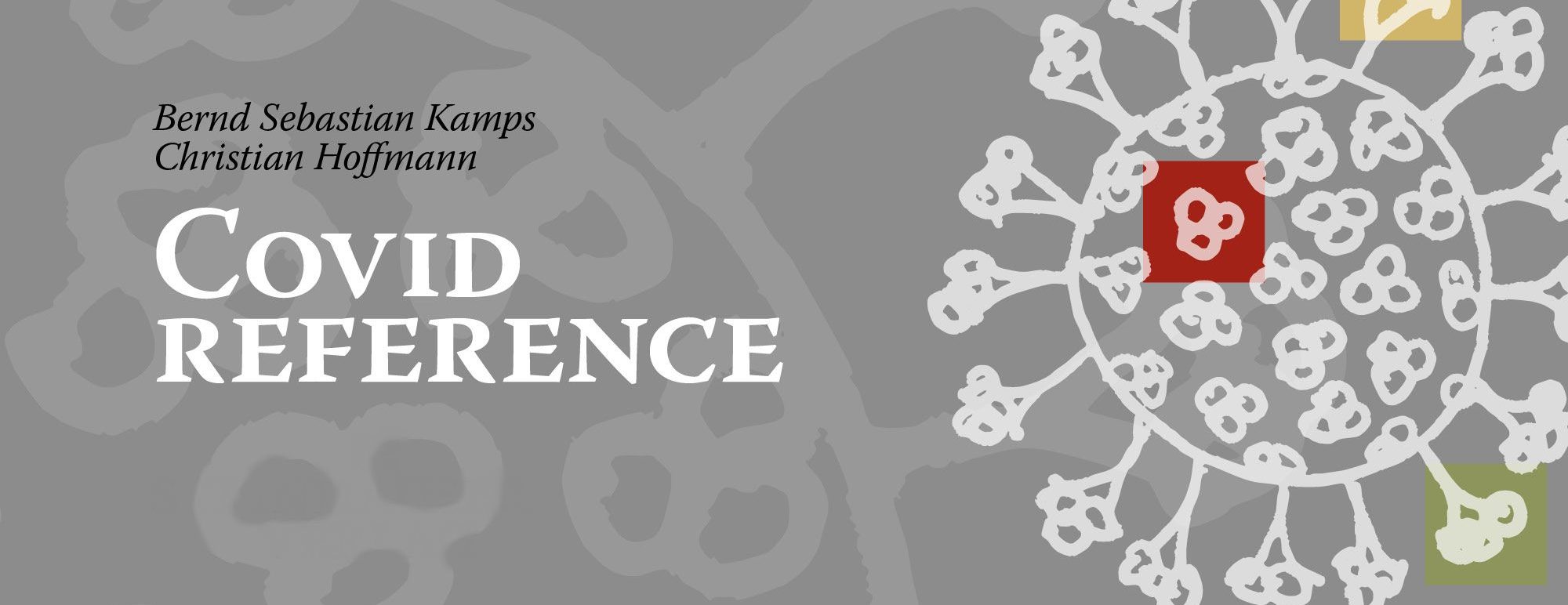Copy-editor: Rob Camp
Vaccines
Paper of the Day
Logunov DY, Dolzhikova IV, Shcheblyakov DV et al. Safety and efficacy of an rAd26 and rAd5 vector-based heterologous prime-boost COVID-19 vaccine: an interim analysis of a randomised controlled phase 3 trial in Russia. Lancet 2021, published 2 February. Full-text: https://www.thelancet.com/journals/lancet/article/PIIS0140-6736(21)00234-8/fulltext
A new entry in the COVID-19 Vaccine Club (CVC): Denis Logunov and colleagues report on the interim clinical efficacy results of the Russian Sputnik V vaccine (rAd26 and rAd5). From 21 days after the first dose of vaccine, 16 (0·1%) of 14 964 participants in the vaccine group and 62 (1·3%) of 4902 in the placebo group were confirmed to have COVID-19; vaccine efficacy was 91·6% (95% CI 85·6–95·2). The vaccine will help to diversify the world SARS-CoV-2 vaccine pipeline. Welcome to the CVC, Sputnik V!
See also Jones I, Roy P. Sputnik V COVID-19 vaccine candidate appears safe and effective. Lancet 2021, published 2 February. Full-text: https://www.thelancet.com/journals/lancet/article/PIIS0140-6736(21)00191-4/fulltext
Krammer F, Srivastava K, PARIS team, Simon V. Robust spike antibody responses and increased reactogenicity in seropositive individuals after a single dose of SARS-CoV-2 mRNA vaccine. medRxiv 2021, posted 1 February. Full-text: https://doi.org/10.1101/2021.01.29.21250653
Individuals with pre-existing immunity against SARS-CoV-2 need only one dose of vaccine. Consequence: we could spare the second for other people. This is the result of a study by Florian Krammer and colleagues who provide evidence that the antibody response to the first vaccine dose in individuals with pre-existing immunity is equal to or even exceeds the titers found in naive individuals after the second dose. They also show that the reactogenicity is significantly higher in individuals who were previously infected with SARS-CoV-2. See also Willyard C. Had Covid? You May Need Only One Dose of Vaccine, Study Suggests. The New York Times 2021, published 1 February. Full-text: https://www.nytimes.com/2021/02/01/health/have-you-had-covid-19-coronavirus.html
Vogel AB, Kanevsky I, Che Y, et al. Immunogenic BNT162b vaccines protect rhesus macaques from SARS-CoV-2. Nature. 2021 Feb 1. PubMed: https://pubmed.gov/33524990. Full-text: https://doi.org/10.1038/s41586-021-03275-y
The people from BioNTech talk about the beginnings of the vaccine developed now in cooperation with Pfizer. This Nature paper reports the first antigen-specific immune responses in… mice and rhesus macaques.
Epidemiology
Public Health England 20210115. Investigation of novel SARS-COV-2 variant: Variant of Concern 202012/01 – Technical briefing 5. UK Government 2021, updated 2 February; accessed 2 February 2021. Full-text: https://assets.publishing.service.gov.uk/government/uploads/system/uploads/attachment_data/file/957504/Variant_of_Concern_VOC_202012_01_Technical_Briefing_5_England.pdf
The key messages:
- The spike protein mutation E484K has been detected in 11 B117 sequences (page 17). Preliminary information suggests more than one acquisition event.
- Estimated attack rates for cases with SGTF are 25% – 40% higher than estimated attack rates for cases with S gene detection results and no SGTF for most regions and age groups, excepting groups with few records such as the 80+ age group (page 17).
Transmission
Vibholm LK, Nielsen SSF, Pahus MH, et al. SARS-CoV-2 persistence is associated with antigen-specific CD8 T-cell responses. Ebiomedicine 2021, published 1 February. Full-text: https://doi.org/10.1016/j.ebiom.2021.103230
No SARS-CoV-2 transmission from individuals that remain SARS-CoV-2 PCR positive by pharnygeal swab weeks after recovery. The authors enrolled 203 post-symptomatic participants with a previous RT-PCR-verified SARS-CoV-2 infection. At time point 1, a median of 23 days (range 15–44) after recovery, 26 individuals (12,8%) were PCR positive. At time point 2, 90 days (median, range 85–105) after recovery, 5 (5,3%) were positive. The persistent PCR positive group however, had SARS-CoV-2-specific CD8 T cell responses of significantly increased breadth and magnitude. Contact tracing among persistent PCR positive individuals revealed zero new COVID-19 diagnoses among 757 close contacts. Persistent PCR positive individuals are not contagious at the post-symptomatic stage of the infection.
Virology
Tegally H, Wilkinson E, Lessels RJ, et al. Sixteen novel lineages of SARS-CoV-2 in South Africa. Nat Med 2021, published 2 February. Full-text: https://doi.org/10.1038/s41591-021-01255-3
SARS-CoV-2 lineages from pre-variant times. Tulio de Oliveira, Houriiyah Tegally and colleagues analyzed 1,365 near whole genomes and report the identification of 16 new lineages isolated between March and August 2020. Most lineages had unique mutations that had not been identified elsewhere. The authors show that genomic surveillance can be implemented on a large scale in Africa to identify new lineages and inform measures to control the spread of SARS-CoV-2.
Diagnostics
Vogels CBF, Breban M, Alpert T, et al. PCR assay to enhance global surveillance for SARS-CoV-2 variants of concern. medRxiv 2021, posted 1 February. Full-text: https://doi.org/10.1101/2021.01.28.21250486
Nathan Grubaugh, Chantal Vogels and colleagues identified a deletion in the ORF1a gene (ORF1a Δ3675-3677) in the new “trio infernale” variants B117, B1351, and P1, which has not yet been widely detected in other SARS-CoV-2 lineages. Using ORF1a Δ3675-3677 as the primary target and spike Δ69-70 to differentiate, they designed and validated an open source PCR assay to detect the new variants. The authors assure that their assay can be rapidly deployed in laboratories around the world to enhance surveillance for any local emergence of B117, B1351, P1.
Press
Wei-Haas M. Why some coronavirus variants are more contagious—and how we can stop them. National Geographic 2021, published 27 January. Full-text: https://www.nationalgeographic.com/science/2021/01/why-some-coronavirus-variants-are-more-contagious/
In the United Kingdom, variant B.1.1.7 likely drove the region’s record-setting spike of COVID-19 cases in January. The variant is now circulating in more than 60 countries, including the United States—and projections suggest it will become the most common virus variety in the US by mid-March.
Portuguese
If you read Portuguese, read Amaro S, do Carmo I. Notícias do túnel. Público 2021, published 29 January. Full-text: https://www.publico.pt/2021/01/29/sociedade/noticia/noticias-tunel-1947979
A médica Isabel do Carmo esteve internada dez dias com covid-19 no Hospital de Santa Maria, em Lisboa. Este é o seu testemunho, que é também um alerta e um gesto de reconhecimento.
